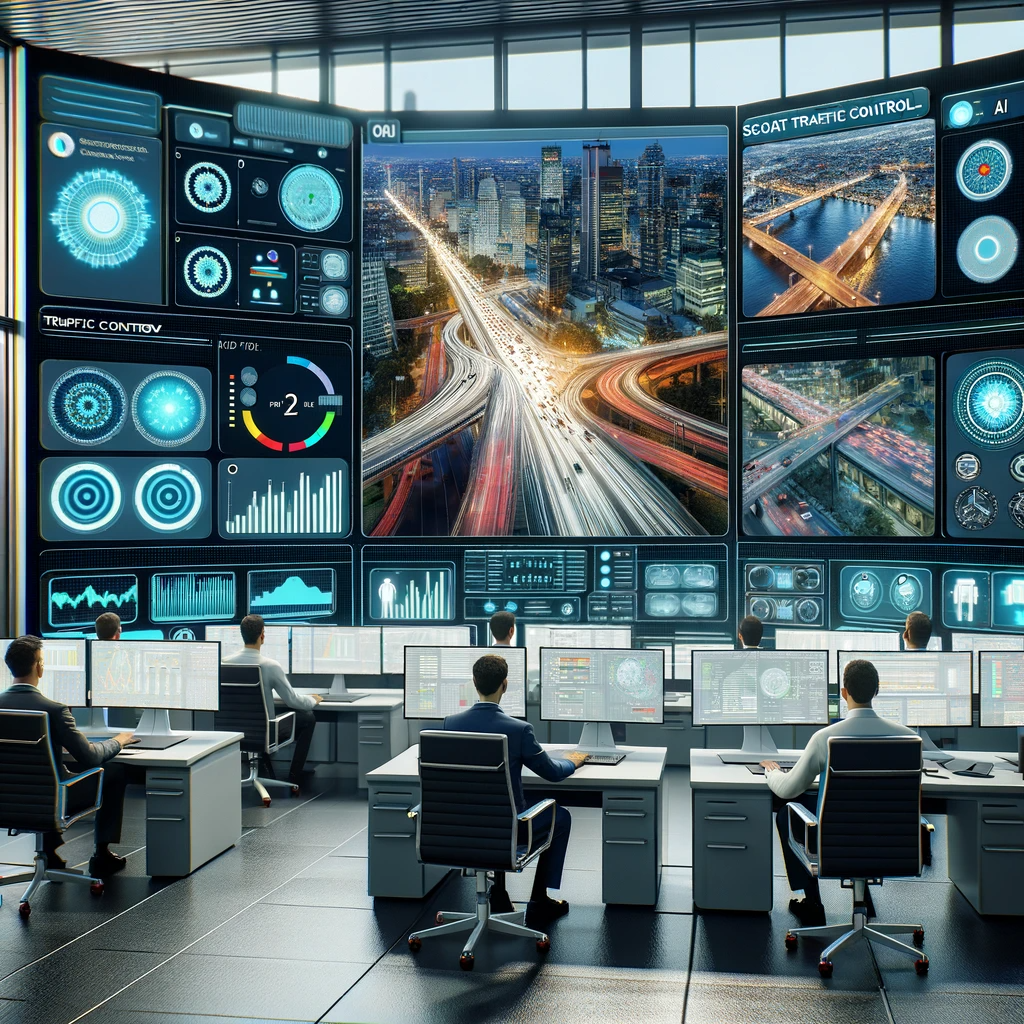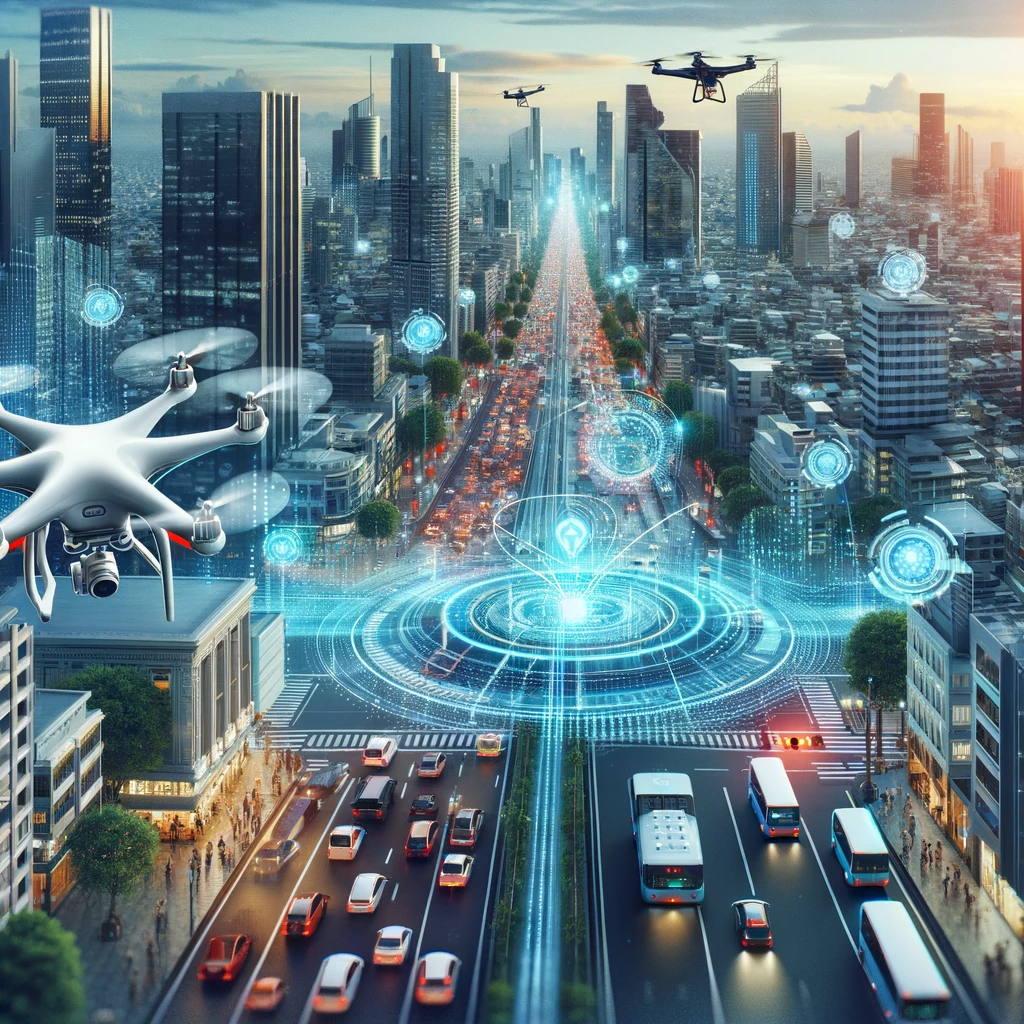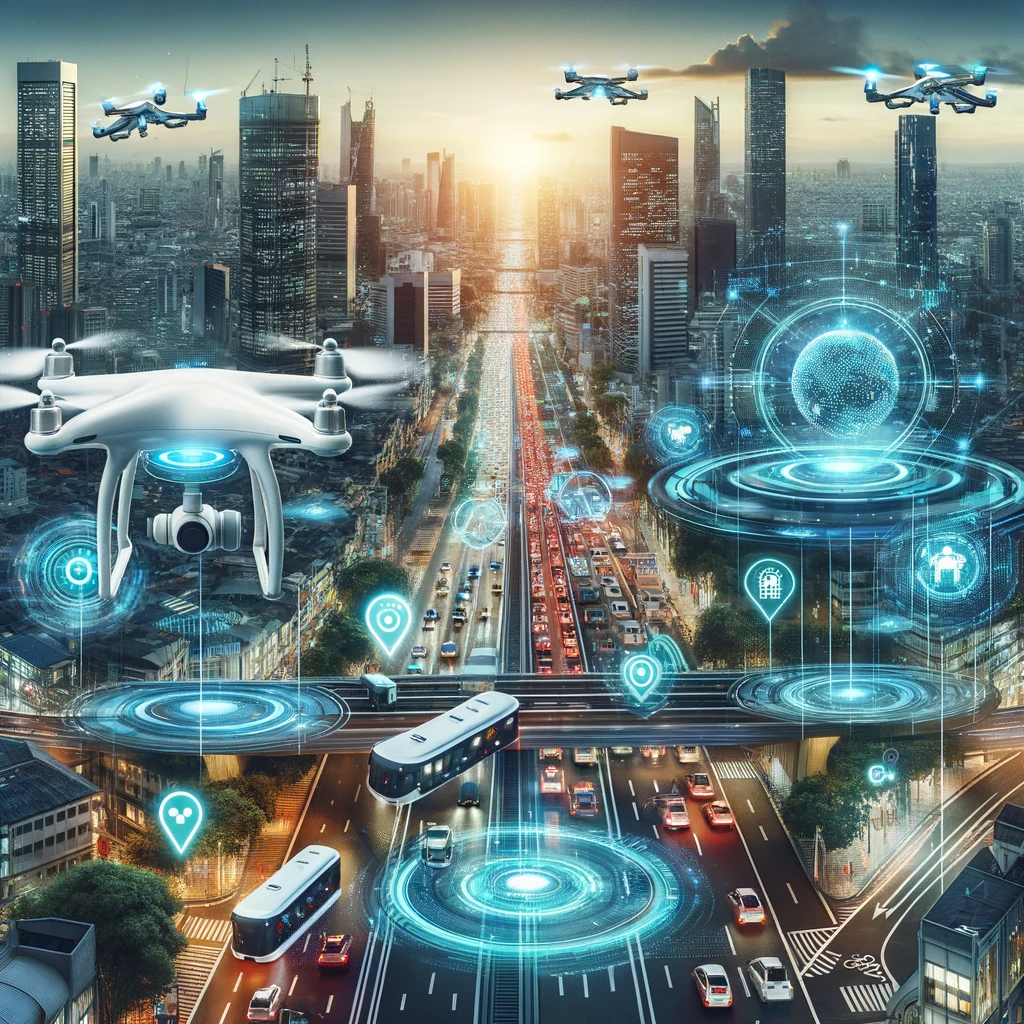In the bustling heart of any city, traffic is a constant companion. The daily commute, the rush-hour congestion, and the seemingly endless sea of vehicles have long been a hallmark of urban living. However, in the era of artificial intelligence (AI), cities worldwide are embracing innovative solutions to tackle these traffic woes head-on. From optimizing traffic flow to reducing congestion and enhancing overall transportation systems, AI is poised to redefine the way we approach urban traffic management.
The Urban Traffic Dilemma
Urbanization has led to an unprecedented increase in the number of vehicles on the road. As more people flock to cities in search of better opportunities, the strain on transportation infrastructure becomes increasingly apparent. Traffic congestion not only frustrates commuters but also has significant economic and environmental implications.
The traditional approach to managing urban traffic relies on fixed traffic signals, static lane configurations, and manual monitoring. While these methods have served us for decades, they struggle to adapt to the dynamic nature of modern cities. The result? Traffic jams, wasted time, increased fuel consumption, and elevated levels of pollution.

AI as the Game Changer
Enter artificial intelligence. With its ability to analyze vast datasets, make real-time decisions, and adapt to changing conditions, AI is the game changer cities have been waiting for. Here’s how it’s redefining urban traffic management:
- Traffic Prediction and Management
AI algorithms can analyze historical traffic data, weather conditions, events, and even social media trends to predict traffic patterns accurately. By anticipating congestion hotspots, authorities can proactively manage traffic by adjusting signal timings and redirecting vehicles to less congested routes.
- Adaptive Traffic Signals
Traditional traffic signals operate on fixed timers, leading to inefficiencies during low-traffic hours and congestion during peak times. AI-driven traffic signals adjust in real-time based on traffic volumes, prioritizing the smooth flow of vehicles and reducing wait times for commuters.
- Intelligent Traffic Cameras
AI-equipped cameras can monitor traffic conditions and automatically detect incidents such as accidents or stalled vehicles. These systems trigger faster responses from authorities, improving incident management and reducing secondary accidents.
- Dynamic Lane Management
AI can optimize lane configurations based on traffic conditions. For example, during morning rush hours, additional lanes can be allocated for inbound traffic, while in the evening, the lanes can switch to accommodate outbound traffic, reducing congestion.
- Public Transportation Enhancement
AI can enhance public transportation systems by optimizing bus routes, predicting rider demand, and ensuring that buses run on schedule. This encourages more people to use public transit, reducing the number of vehicles on the road.
- Predictive Maintenance
AI can also help maintain transportation infrastructure by predicting when roads, bridges, or tunnels require maintenance. This proactive approach minimizes disruptions caused by unplanned repairs.
Success Stories in Urban Traffic Management
Several cities around the world have already harnessed the power of AI to address their traffic challenges. Here are a few notable examples:
Singapore: The city-state of Singapore uses an extensive network of sensors and AI algorithms to manage traffic efficiently. The system adjusts traffic light timings in real-time, resulting in smoother traffic flow.
Los Angeles: LA has adopted AI-powered traffic management to reduce congestion on its busy freeways. Dynamic toll pricing and variable speed limits help keep traffic moving.
Barcelona: The Spanish city has implemented smart traffic lights that use AI to manage intersections. The system adapts to real-time traffic conditions, reducing both waiting times and emissions.
Challenges and Considerations
While AI holds tremendous promise, it’s not without its challenges. Privacy concerns related to surveillance cameras, data security, and the potential for algorithmic bias are significant considerations. Cities must navigate these issues while ensuring that AI-driven traffic management benefits all residents, regardless of socioeconomic status.

The Road Ahead
As AI continues to evolve and become more integrated into urban infrastructure, the future of traffic management looks promising. Smart cities are embracing these technologies to create more efficient, sustainable, and livable urban environments.
AI’s role in redefining urban traffic management isn’t just about optimizing the movement of vehicles; it’s about enhancing the quality of life for city dwellers. By reducing congestion, improving transportation systems, and lowering emissions, AI is helping us create cities where traffic becomes a manageable challenge, rather than a daily frustration. As our cities continue to grow and evolve, AI will undoubtedly play a central role in shaping the way we move through them.
